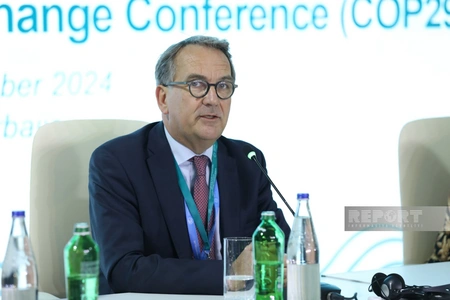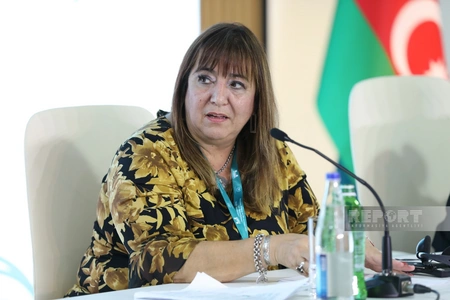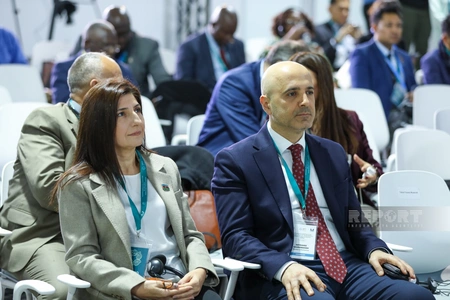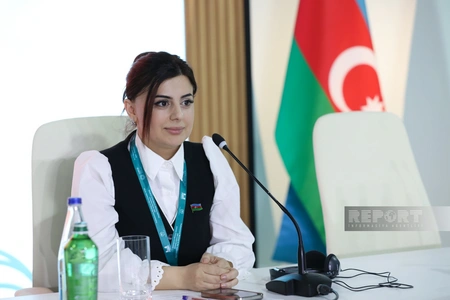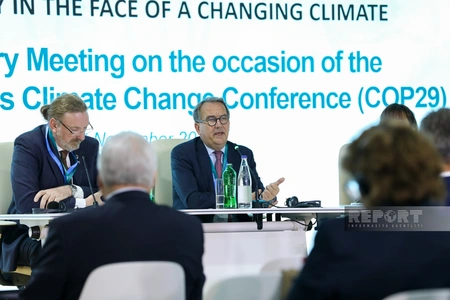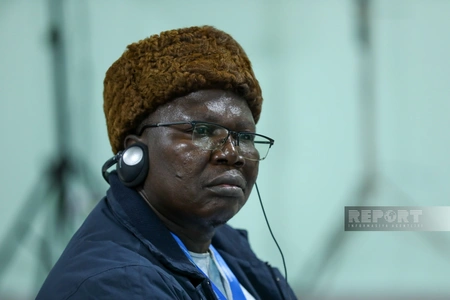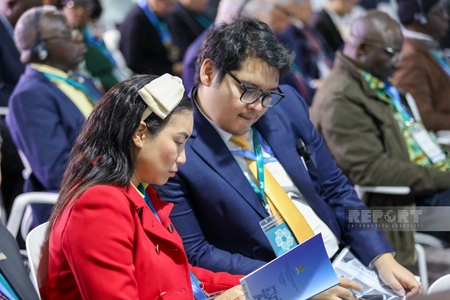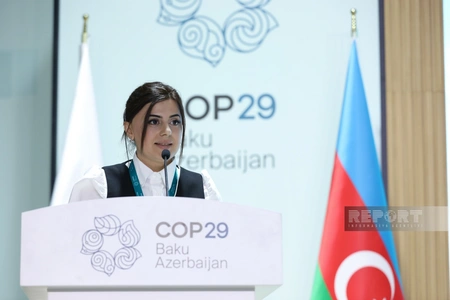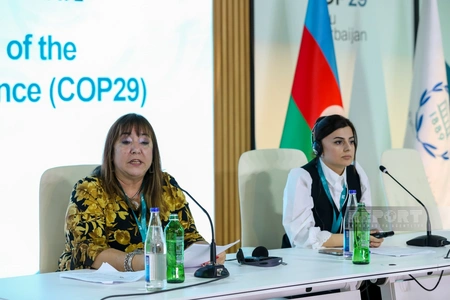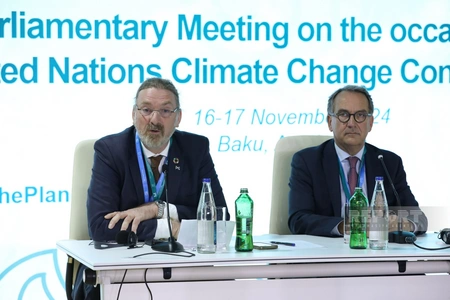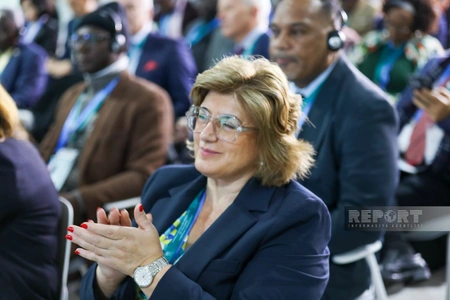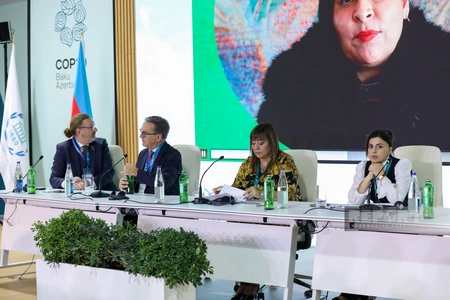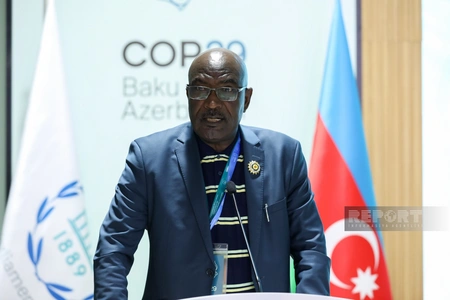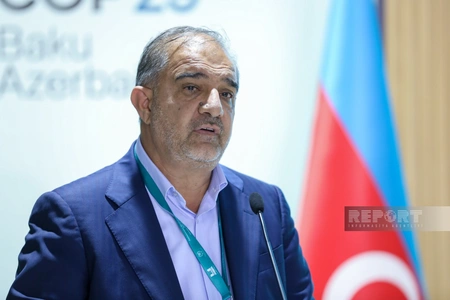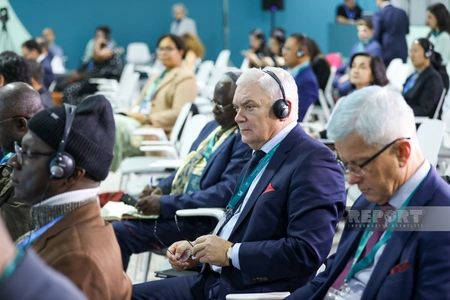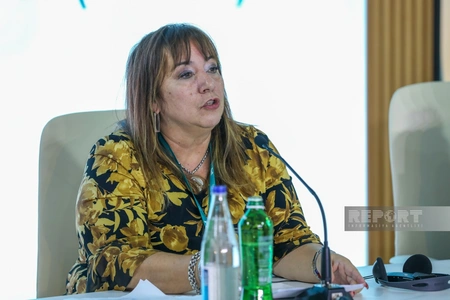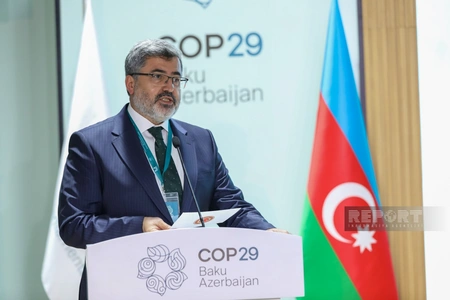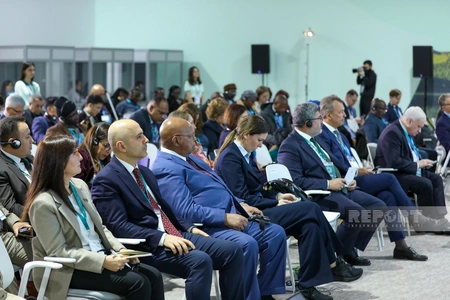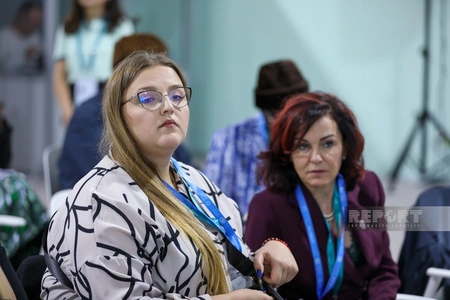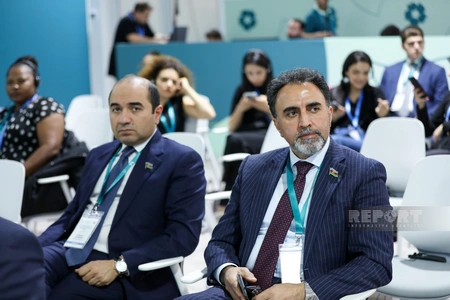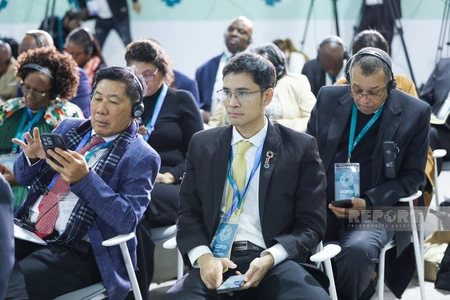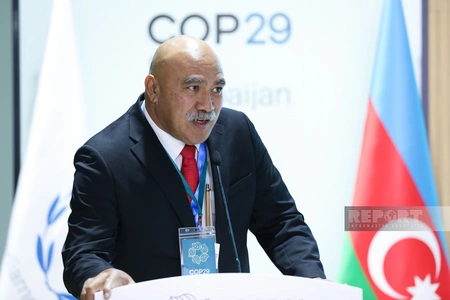Impact of climate change on health discussed at Baku Parliamentary meeting
- 17 November, 2024
- 13:19
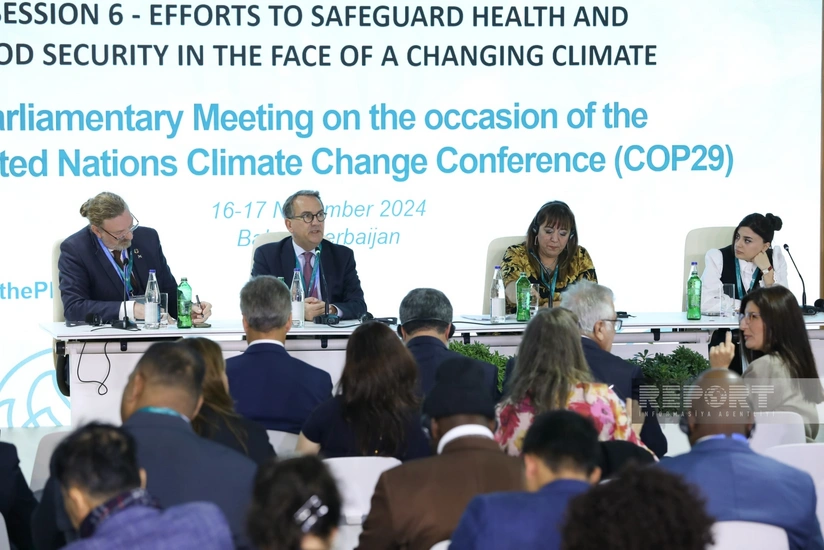
At the Parliamentary meeting during COP29 in Baku, jointly organized by the Inter-Parliamentary Union and the Azerbaijani Parliament, efforts to protect health and food security in relation to climate change were discussed, Report informs.
This session examined ways for parliaments to implement an integrated approach to addressing health and climate issues. Additionally, strategies were discussed to reduce losses in agricultural and fishing sectors that threaten food security and lead to malnutrition.
Uruguay Senate member Irene Moreira stated that climate change affects human health both directly and indirectly. "This risk is especially high for elderly people and children. Climate change affects not only quality but also reduces accessibility (of food). Rising temperatures, in turn, reduce productivity in relevant areas. Floods and climate changes also affect working conditions," she said.
Azerbaijani MP Parvana Valiyeva noted that according to the international panel of experts on climate change, temperature rise can seriously affect people's lives: "Besides financial assistance discussed at COP29, it's very important to fund healthcare systems. It's also necessary to allocate funds for pandemic preparedness, prevention, and response measures."
The deputy emphasized that Azerbaijan faces a serious problem with transboundary water pollution.
"Some mining enterprises in neighboring countries are located near transboundary river basins, and waste is discharged into the Kura and Araz, as well as other rivers of the country. This creates public health problems, leads to increased cancer cases, and also damages agriculture using Araz River water," concluded Valiyeva.
The event concluded with a question-and-answer session.
Photo: Vugar Khanlarov
